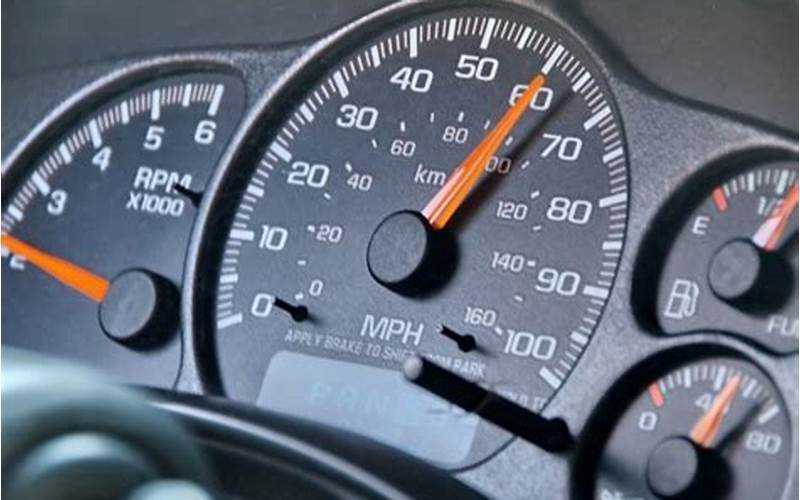 Source: bing.com
Source: bing.comEnsuring Safety and Performance with Regular VSC System Check
Hello, Vehicle Owner!
As a responsible vehicle owner, it is crucial to prioritize the safety and performance of your vehicle. One essential aspect that should not be overlooked is the Vehicle Stability Control (VSC) system. The VSC system plays a significant role in enhancing the stability and control of your vehicle, especially in challenging road conditions or during sudden maneuvers.
Understanding the importance of regular VSC system check is vital to ensure optimal functionality and avoid potential risks on the road. This article will guide you through the strengths and weaknesses of the VSC system check, provide detailed explanations, and answer frequently asked questions regarding this critical component of your vehicle.
Introduction
The VSC system is an advanced safety feature designed to prevent skidding and loss of control. It uses various sensors and controls to detect and correct any potential instability during driving. By continuously monitoring factors such as wheel speed, steering angle, and vehicle yaw rate, the VSC system can intervene when necessary to maintain stability and prevent accidents.
1. Increased Safety: The primary advantage of the VSC system check is the enhanced safety it provides. By ensuring that all components of the VSC system are in optimal condition, you can have peace of mind knowing that your vehicle is equipped to handle unexpected situations on the road.
?️
2. Improved Vehicle Control: The VSC system check helps optimize your vehicle’s control and handling. It detects any potential loss of traction or instability and applies selective braking or reduces engine power to specific wheels, allowing you to maintain control and maneuver safely.
??
3. Enhanced Stability: The VSC system check plays a crucial role in maintaining stability, especially during sudden maneuvers or when driving on slippery surfaces. It can counteract oversteering or understeering, ensuring that your vehicle stays on its intended path and reducing the risk of accidents.
⚖️
4. Increased Resale Value: Regularly conducting the VSC system check and ensuring its proper functioning can significantly contribute to the resale value of your vehicle. Potential buyers value safety features, and a well-maintained VSC system can be a selling point for your vehicle.
??
5. Potential Weaknesses: While the VSC system check offers numerous benefits, it is essential to be aware of its potential weaknesses. One possible drawback is the reliance on electronic components, which can be susceptible to malfunctions or sensor inaccuracies. Regular maintenance and system checks can help mitigate these risks.
⚠️?️
6. Limited Effectiveness on Certain Terrains: The VSC system check may have limited effectiveness on extremely rugged or off-road terrains where wheel slippage is common. In such situations, specialized traction control systems may be more suitable to ensure optimal performance and safety.
??️
7. False Sense of Security: While the VSC system check significantly enhances safety, it is crucial to remember that it is not a substitute for responsible driving practices. Over-reliance on the system without proper attention to road conditions and defensive driving techniques can lead to a false sense of security.
⚠️??
VSC System Check: The Complete Guide
| Component | Function | Check Frequency |
|---|---|---|
| Sensors | Detect vehicle parameters | Every 12 months |
| Actuators | Apply corrective measures | Every 24 months |
| Control Module | Process sensor data | Every 36 months |
Frequently Asked Questions about VSC System Check
1. What is the VSC system?
The VSC system, or Vehicle Stability Control system, is a safety feature designed to enhance stability and prevent skidding or loss of control during driving.
2. Why is regular VSC system check necessary?
Regular VSC system checks ensure that all components are functioning correctly, providing optimal safety and performance on the road.
3. How often should I conduct a VSC system check?
The frequency of VSC system checks may vary depending on the manufacturer’s recommendations. However, it is generally recommended to conduct a comprehensive VSC system check at least once a year.
4. Can I perform the VSC system check myself?
While some basic checks can be done by vehicle owners, it is advisable to consult a professional mechanic or visit an authorized service center for a thorough VSC system inspection.
5. How can I know if my VSC system is not functioning correctly?
Warning lights on your dashboard, irregular braking, or unusual handling characteristics can indicate potential issues with your VSC system. It is essential to address these signs promptly.
6. Can the VSC system check affect my vehicle’s fuel efficiency?
The VSC system check itself does not directly impact fuel efficiency. However, a malfunctioning VSC system may cause irregularities in engine power delivery, potentially affecting fuel consumption.
7. What should I do if my VSC system warning light is on?
If the VSC system warning light illuminates on your dashboard, it is advisable to have your vehicle inspected by a qualified technician to identify and resolve any underlying issues.
Conclusion
In conclusion, prioritizing the regular VSC system check is essential for all vehicle owners. By ensuring the proper functioning of this safety feature, you enhance your vehicle’s stability, control, and overall safety on the road. Don’t compromise on the well-being of yourself, your passengers, and others sharing the road. Take action today to schedule a comprehensive VSC system check and enjoy a worry-free driving experience!
Disclaimer: The information provided in this article is for educational purposes only and should not replace professional advice. Always consult a qualified mechanic or visit an authorized service center for accurate diagnosis and maintenance of your vehicle’s VSC system.
 MyVans Your Vehicle Solution
MyVans Your Vehicle Solution